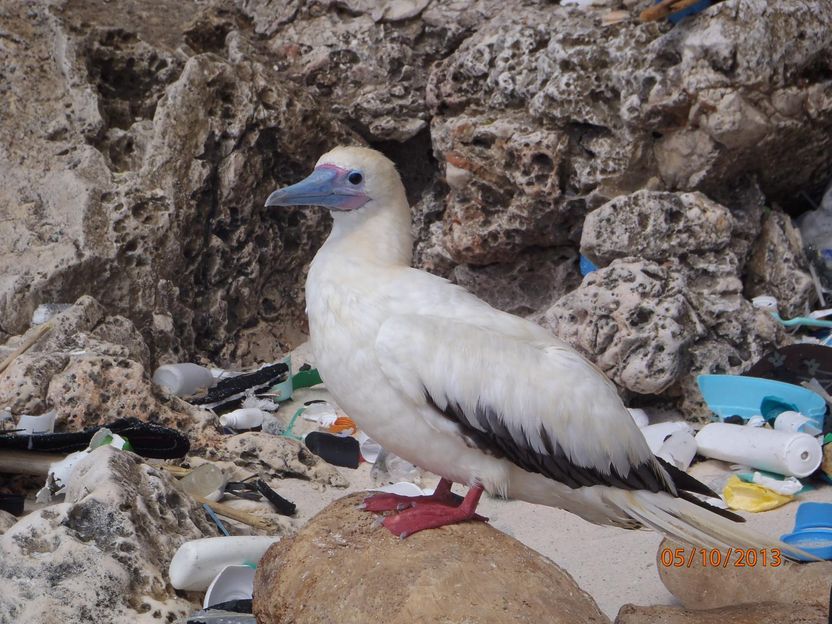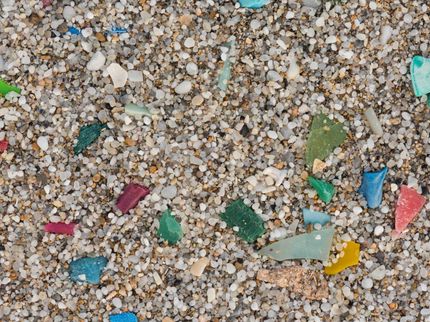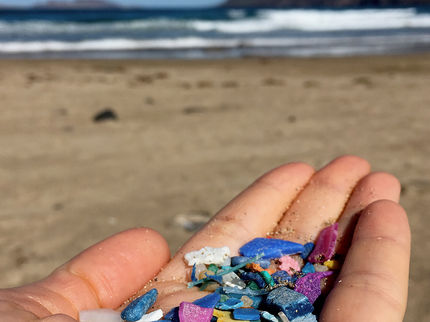Plastic in 99 percent of seabirds by 2050
Researchers from CSIRO and Imperial College London have assessed how widespread the threat of plastic is for the world's seabirds and found the majority of seabird species have plastic in their gut.

This is a red-footed booby on Christmas Island
CSIRO
The study, led by Dr Chris Wilcox with co-authors Dr Denise Hardesty and Dr Erik van Sebille found that nearly 60 per cent of all seabird species have plastic in their gut.
Based on analysis of published studies since the early 1960s, the researchers found that plastic is increasingly common in seabird's stomachs.
In 1960, plastic was found in the stomach of less than 5 per cent of individual seabirds, rising to 80 per cent by 2010.
The researchers predict that plastic ingestion will affect 99 per cent of the world's seabird species by 2050, based on current trends.
The scientists estimate that 90 per cent of all seabirds alive today have eaten plastic of some kind.
Birds mistake the brightly coloured items for food, or swallow them by accident, and this causes gut impaction, weight loss and sometimes even death.
"For the first time, we have a global prediction of how wide-reaching plastic impacts may be on marine species - and the results are striking," senior research scientist at CSIRO Oceans and Atmosphere Dr Wilcox said.
Dr Denise Hardesty from CSIRO Oceans and Atmosphere said seabirds were excellent indicators of ecosystem health.
"Finding such widespread estimates of plastic in seabirds is borne out by some of the fieldwork we've carried out where I've found nearly 200 pieces of plastic in a single seabird," Dr Hardesty said.
The researchers found plastics will have the greatest impact on wildlife where they gather in the Southern Ocean, in a band around the southern edges of Australia, South Africa and South America.
Dr van Sebille, from the Grantham Institute at Imperial College London, said the plastics had the most devastating impact in the areas where there was the greatest diversity of species.
"We are very concerned about species such as penguins and giant albatrosses, which live in these areas," Erik van Sebille said.
"While the infamous garbage patches in the middle of the oceans have strikingly high densities of plastic, very few animals live here."
Dr Hardesty said there was still the opportunity to change the impact plastic had on seabirds.
"Improving waste management can reduce the threat plastic is posing to marine wildlife," she said.
"Even simple measures can make a difference. Efforts to reduce plastics losses into the environment in Europe resulted in measureable changes in plastic in seabird stomachs with less than a decade, which suggests that improvements in basic waste management can reduce plastic in the environment in a really short time."
Original publication
Most read news
Original publication
Chris Wilcox, Erik Van Sebille, and Britta Denise Hardesty; "Threat of plastic pollution to seabirds is global, pervasive, and increasing"; PNAS; 2015
Organizations
Other news from the department science

Get the chemical industry in your inbox
By submitting this form you agree that LUMITOS AG will send you the newsletter(s) selected above by email. Your data will not be passed on to third parties. Your data will be stored and processed in accordance with our data protection regulations. LUMITOS may contact you by email for the purpose of advertising or market and opinion surveys. You can revoke your consent at any time without giving reasons to LUMITOS AG, Ernst-Augustin-Str. 2, 12489 Berlin, Germany or by e-mail at revoke@lumitos.com with effect for the future. In addition, each email contains a link to unsubscribe from the corresponding newsletter.




























































